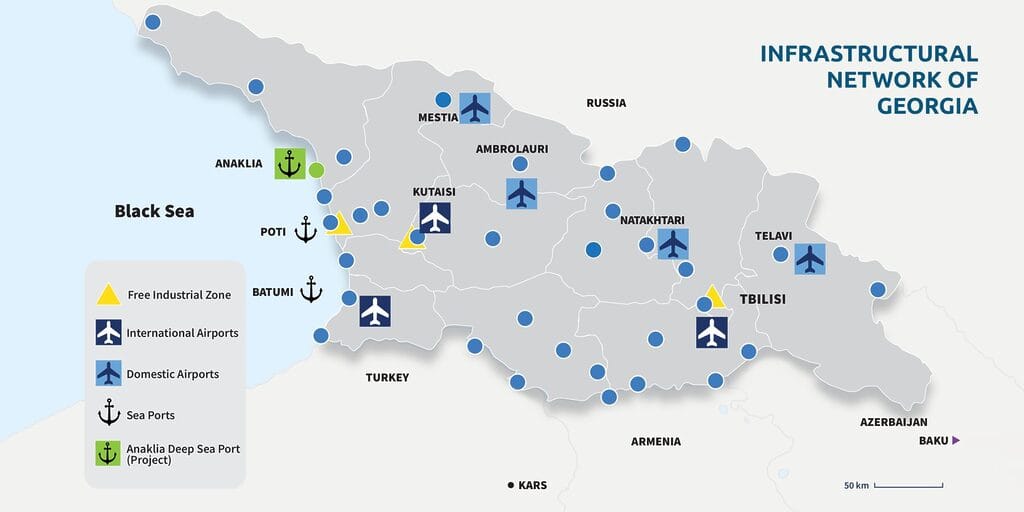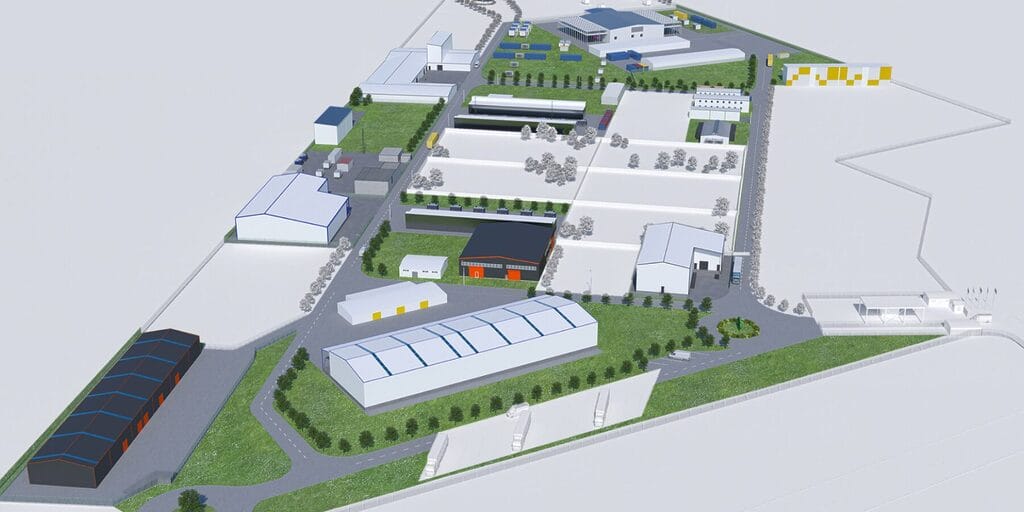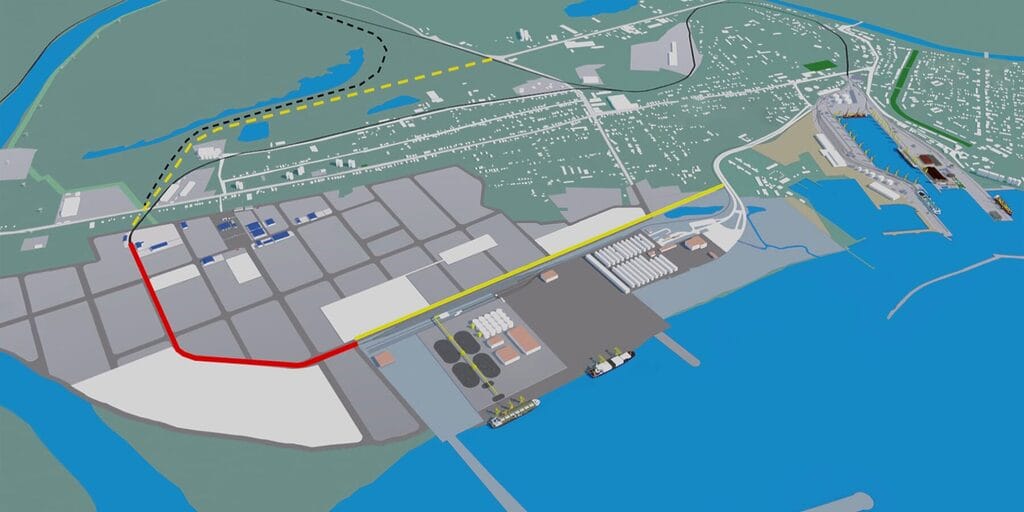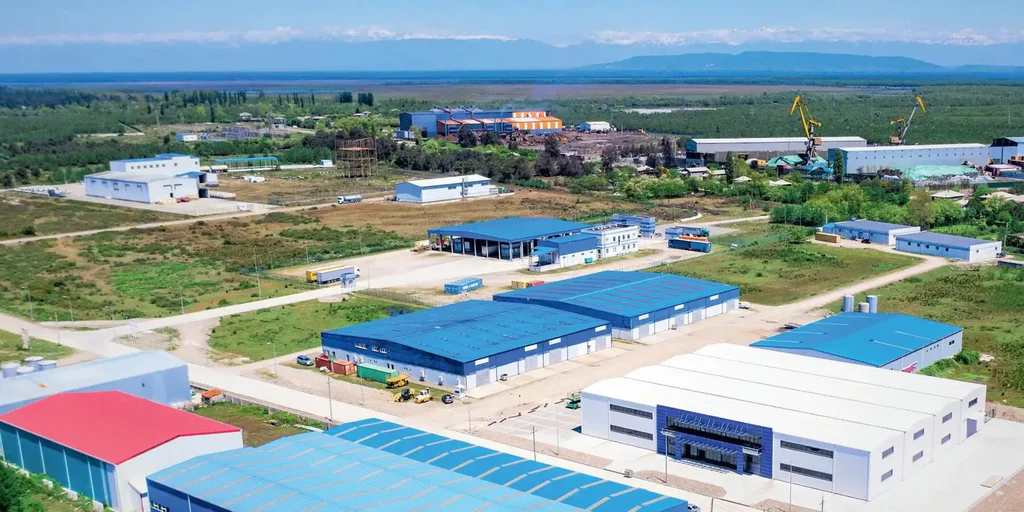Everyone knows duty-free: that store at the airport or border crossing where you can buy booze, cigarettes, perfume, etc. without the tax. Well, a special (or free) economic zone, FEZ for short, is to international business what duty-free is to travel. There are about 7,000 FEZs in the world today, and four of them are in Georgia, with more waiting in the wings.
What is a free zone?
In general, a free economic zone is a special territory within a country subject to special tax regimes.
In Georgia, the free zone is introduced in Chapter 21 of the Customs Code. The most common type is a free industrial zone (FIZ), described in the 2007 draft law of the same name and in separate government resolutions.
The law allows the Georgian authorities to organize an FIZ at the request of an individual or legal entity on any territory of 10 hectares or more (excluding specially protected lands, obviously), provided the initiators possess an FIZ development plan, ownership or a lease for the land, and resources to implement the project (for example, a bank guarantee for EUR 2 million is required).
In short, a free industrial zone is like a special administrative territory with its own checkpoints. It’s still subject to Georgian legislation and operates under government control, but the infrastructure and conditions for doing business in the FIZ are actually managed by private company-administrators.
To join an existing free zone, you must coordinate your application with these private companies and be prepared to operate in the territory under their control in strict accordance with the license obtained.
Companies looking to register in a Georgian FIZ are not restricted to any particular form of ownership and may be established by non-residents. There are no restrictions on type of activity, except for the production of weapons, radioactive components, psychotropic and narcotic drugs, and tobacco products (but you didn’t want to do that anyway).
What kind of company is a good fit for an FIZ? Anyone involved in manufacturing, storage, logistics, sale and resale, consulting, and business services, with some exceptions. For example, there are no tax benefits (yet) for organizations selling services rather than actual goods. For businesses developing software and digital solutions, we recommend obtaining international company status or becoming a member of a virtual zone, something you can learn more about during a free 30-minute consultation with a PB Services specialist. Click here to request yours.
Tax incentives in free zones
The Tax Code of Georgia defines six main taxes (plus dividend tax). Residents of a free industrial zone are exempt from all except personal income tax:
- Value Added Tax is 0% (normally 18%).
- Corporate income tax is 0% (normally 15%).
- Tax on dividend distributions is 0% (normally 5%).
- Property tax in FIZ is 0% (1% for other companies).
- Import tax is 0% (normally 5% or 12%). Export tax is also zero, but that’s the case for everyone.
- Income tax is 20% (there is no benefit here). Companies have to deal with this tax when paying salaries.
An important caveat: Import and export tax is not levied when an FIZ participant sells goods outside the country or buys them abroad. If the counterparty is located in Georgia, 4% of the invoice amount is paid when importing and exporting. In other words, registering a business in an FIZ makes sense if you’re going global.
Other free zone benefits
- Transactions in any currency
- Low cost electricity and other utilities
- Developed infrastructure and increased security: All free zones are fenced and under 24-hour surveillance
- Easy registration and value-added services for businesses, from rental space to turnkey solutions for waste management, customs clearance, and inventory storage
- Virtual office rental if the business doesn’t have to be physically present in the FIZ
- Access to the international market and duty-free trade with the EU, China, Turkey, Ukraine, and members of the CIS, as well as customs privileges with the USA, Norway, Switzerland, Canada, and Japan under the Generalized System of Preferences (GSD). In addition, Georgia has signed double taxation avoidance agreements with 58 countries

Georgia’s four free zones
1. Tbilisi Free Zone
The newest and most modern of those in operation, it appeared at the end of 2015 and occupies 17 hectares near Gldani, just 25 minutes from the center of the capital, 20 minutes from Tbilisi airport and a half-hour drive to Armenia and Azerbaijan. As widely noted, this free zone provides access to 80% of Georgia’s labor market.
The FIZ was originally organized by the Dutch BitFury Group, owner of the largest data center for cryptocurrency mining (the reason the Tbilisi zone is often associated with crypto). In 2023, however, Zoti Holding LLC, whose key investors are from Georgia with Hungarian and German beneficiaries, took over.
There are companies involved in the production of foodstuffs, construction materials, and precious metals, among others, operating in the Tbilisi Free Industrial Zone. For example, Boeing airplane seat frames are made here, and pharmaceutical warehouses have been organized in accordance with Good Distribution Practice (GDP) requirements. Official website: https://tfz.ge/

2. Poti Free Zone
The oldest and largest of the industrial zones, Poti Free Zone opened its gates in 2008, occupies over 300 hectares, and is well-positioned in Georgia’s largest port city with the potential to become a key hub on the New Silk Road connecting Asia, Europe, and Africa. The zone has its own railway station, and the international airports in Batumi and Kutaisi are just a hop, skip, and a jump away.
The industrial zone was initiated by Emirati Ras Al Khaimah Investment Authority (RAKIA), but CEFC China Energy Company Limited bought a 75% stake in 2017. According to the Poty FIZ financial report for 2023, the Chinese investors have retained their controlling stake, another 15% belongs to RAKIA, and 10% is owned by the Georgian government (Poti is the only zone with direct state involvement).
There are now dozens of companies in Poti producing, selling, storing, and re-exporting a wide range of goods. One presentation mentions textiles, pharmaceuticals, electronics, and logistics as priority sectors, but other types of business are also welcomed. Official website: https://potifreezone.ge.

3. Kutaisi Free Zone
The second oldest zone appeared in Kutaisi in 2009 on 27 hectares that used to be the Kutaisi Automobile Plant, producer of the famous Soviet KAZ – Kolkhida truck.
It is well-placed for international trade just 19km from the airport (or 10km as the crow flies), and low rent and a sizeable labor pool lend the region added allure. Kutaisi is Georgia’s fourth largest city, after Tbilisi, Batumi, and Rustavi, the average salary, according to Geostat, is half of what it is in the capital, and there are plans to turn Kutaisi into a high-tech hub with a startup accelerator in the former parliament building.
Kutaisi FIZ is officially operated by Georgian International Holding, but the ultimate beneficiary is the Egyptian corporation Fresh Electric. The project was initially created as part of a Georgian-Egyptian partnership but has since taken on a life of its own. As in Poti, there are no restrictions on types of business: technology, mining, logistics, you name it.
Official website: https://kutaisifreezone.ge/.
4. Hualing Free Zone
In operation since 2012 and located next to the Kutaisi Free Zone, the Hualing Free Industrial Zone expanded to 58 hectares in 2022, and there are plans to take that all the way to 100 hectares.
The infrastructure is managed by the Chinese Hualing Group, which has been investing in Georgia for more than 15 years and owns BasisBank and hotels and parks throughout the country.
The organizations in the free zone are engaged in woodworking, pharmaceuticals, solar batteries, textiles and furniture. The management has plans to get into plastic processing and build a ferroalloy plant.
Official website: www.hualingfiz.ge.
Projects currently in the works
- The Kulevi Free Industrial Zone has been on the radar since 2012 but has yet to open. It’s complicated. The FIZ was originally conceived for an oil refinery, and the waiting seems to be over with the refinery expected to start working in 2025. Black Sea Petroleum has been managing the zone since 2023.
- Kutaisi’s third FIZ is slated to open by the end of 2026 and is being organized by the holding company Georgian Industrial Group (GIG).
- The Sagarejo Free Zone, 60km east of Tbilisi, was expected to open in 2023, then 2024, but now looks unlikely to open before 2026. The operator is ACE Group.
How to open a company in a free zone
The process is pretty much the same for every industrial zone and will take a couple of working days. The most important thing is to choose the right location for your business. Besides infrastructure, the cost of processing the application also varies.
To work in an FIZ, you must first obtain a license for your type of activity, and the price depends on whether you’re in Poti, Kutaisi, or Tbilisi. Prices vary in a single zone, exceeding USD 10,000 for some industries, and there may be additional fees.
Get a free 30-minute consultation from a PB Services specialist and avoid unnecessary expenses. We can help you register your business in an FIZ, remotely, if you want, with a power of attorney:
- First, you need to submit an application to the administrator of your zone of choice with information about your future company.
- After the application is approved, we register your business – usually as an LLC – prepare all the necessary notarized documents in Georgian, including the founder’s charter, minutes, and the FIZ administrator’s consent to provide you with a legal address, and submit the documents to the registry.
- Next, we help you open a corporate bank account – the day after you register your business.
- Finally, the administration of the free industrial zone issues a license to your company, and you can get down to work.
***
Free industrial zones are meant to contribute to the development of the local economy and attract foreign direct investment, with USD 17 billion from foreign investors pouring into Georgia over the last 10 years, though there’s room for improvement, first and foremost in tax legislation.
For example, abolishing the 20% income tax could further reduce unemployment, and internal commerce could benefit if the 4% tax on the export of goods from the FIZ to Georgia were to be axed. Perhaps these initiatives will get a look in the future. In any case, free zone resident status has the potential for almost unlimited business growth.
